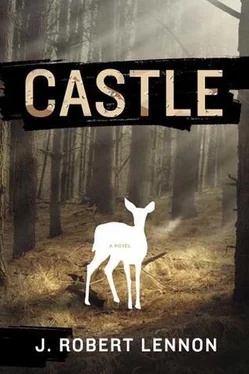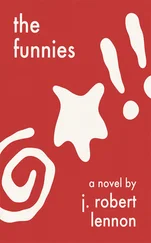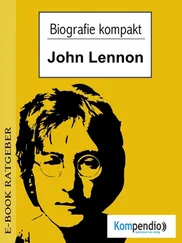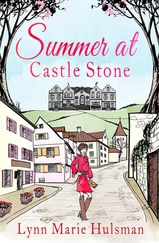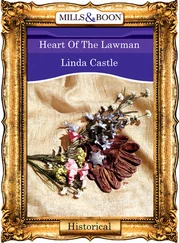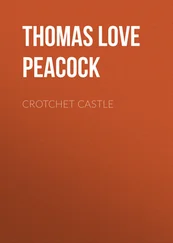“Neither words nor emotions are wasted or spared in J. Robert Lennon’s Castle, a simply told, terrifying and psychologically complex mystery signaling an important American writer in full command of his powers … [This] slow burning work turns into a quickly moving page turner, morphing into a brilliant, classical, psychological horror story that sticks to and gnaws at the bones. Comparisons to Jack London or Hemingway are obvious, but in Loesch, Lennon has invented his own dark-burning mythology.”—Jeff Baker, The Oregonian
“Over the last decade, J. Robert Lennon’s literary imagination has grown increasingly morbid, convoluted and peculiar — just as his books have grown commensurately more surprising, rigorous and fun … Castle tells a terrific story, dire and confusing and convincing.”—Scott Bradfield, The New York Times Book Review
“As Lennon investigates the lethal consequences of failing to question authority, what begins as a claustrophobic tale of suspense gradually becomes an indictment of national policy.”— The New Yorker
“ Castle blends a gothic sense of the un-canny with the more modern sophistication of the psychological thriller. Lennon displays an expert ability to fracture his narrator’s iron resolve with a steady series of disquieting revelations, slowly leading Loesch away from a preoccupation with the physical setting to an awareness that an unknown frontier dwells within him.”—Laura Stokes, Bookforum
“It’s only natural for novels to portray this chaotic moment in history, but few will tackle that task with the complexity and eeriness of [ Castle ]. Constructed like a Chinese box, Lennon nestles story within story to mimic the reality of a labyrinthine Iraqi military interrogation center. At first the novel seems a quaint, neo-Gothic tale of a naïve homebuyer taking possession of a dilapidated fixer-upper in New York state. With echoes of Nathaniel Hawthorne and Edgar Allan Poe, there’s a preternaturally gloomy forest, an eldritch outcropping of rock and, ultimately, a small scale castle with a mysterious owner…. Lennon pulls off a virtuoso performance with this convoluted structure, and like all good thrillers you can’t put it down. Clever and insightful, it compels the reader to solve a series of riddles that reveal the emotional rationale underpinning our most despicable behavior.”—William J. Cobb, The Dallas Morning News
“Shocking … with meticulous prose, Lennon has given voice to a main character who is suspicious and not particularly likable, but who nonetheless commands attention … a chilling, page-turning read.”—Bharti Kirchner, The Seattle Times
“Captivating … What begins as a story of loneliness and forgetting — with Loesch rebuilding his cabin and shrugging off the assistance of townspeople (as well as his own sister) — creeps into a haunting, once he climbs past a peak on his property and discovers evidence of its disturbing history. Lennon leads readers not only into Loesch’s past but, most shockingly, into an indictment of our country. The history is his — and ours.”—Andrew Sean Greer, The Rumpus
“ Castle is a masterpiece of mood with an atmosphere suffused with dread. Even the discovery of a pile of moldy old books is freighted with the hysterical realism of Gothic horror.”—Jim Ruland, Flavorpill
“The upstate New York setting — with its narrow, stone-fenced roads twisting into the darkling woods — is perfectly pitched for a tale of anxiety. The rustling of wind through dead leaves quickly morphs into the sound of pages turning. It’s Lennon’s narrator, however — with his caginess, sudden rages and formal diction — that makes the novel worth the money.”—Emily Carter, Minneapolis Star Tribune
“The author methodically baits readers with mystery and the macabre until the hook is set and then yanks it back with a vengeance … the surprising denouement packs a powerful and brutal punch.”— Publishers Weekly
“A tense psychological thriller … As Loesch struggles to make sense of what’s going on around him, his narration gradually takes on a Poe-like quality of barely-suppressed madness. Lennon uses a combination of psychological uncertainty and the prospect of imminent danger in order to create a tremendous amount of suspense.”—Ryan Michael Williams, PopMatters
“This tale of alienation and unease, of a way both internal and external, serves as one of the best arguments I’ve read for the potency of neo-gothic literature in the 21st century. Lennon has mobilized all the elements of the classic horror tale — including the descent of a character into dark places — to speak to modern issues. Castle proves that in skillful hands these elements retain their power, relevance, and surprising ability to humanize, even in our jaded and surreal times.”—Jeff Vandermeer, The Barnes & Noble Review
“ Castle opens like some hypnotic Kafkaesque mystery or alienated upstate fairytale, with its abandoned fortress deep in the woods, but soon turns modern and strange. J. Robert Lennon leads the reader through his tricky maze with the same consummate skill he’s shown his whole career.”—Stewart O’Nan
“This strange, visionary novel takes on no less a harrowing subject than the wages of Terror on the ordinary human psyche. Even as your sense of complicity builds, you can’t stop turning the pages.”—Kathryn Davis
In the late winter of 2006, I returned to my home town and bought 612 acres of land on the far western edge of the county. The land was forested, undeveloped, and surrounded by hills and farms; no one had lived on it for years. According to my information, it had been bought by the state from a variety of owners during the 1970s, with the intention of turning it into a recreational wilderness. But the state ran out of money and the project never got off the ground. The land, and the farmhouse that stood on it, were forgotten.
My interest in the land was greeted with suspicion by the real estate agent who had been contracted to sell it. A stocky, moon-faced, startlingly short woman in her thirties, she pursed her lips and gazed at me through tired pretty eyes across a cheap aluminum desk. Her name was Jennifer.
“Will you take me to see it?” I asked her.
“I can take you around it, anyway,” she told me. “No roads go through. At least not any I know about. I can show you the house, though.”
“That would be fine.”
“It’s a fixer-upper,” she warned.
“I’m very handy.”
She regarded me with a wary look, as though she doubted my seriousness. We couldn’t go out until after lunch, she said, when “the other girl” came in. It was ten in the morning.
“I’ll take a stroll around town and see the sights,” I said.
“That’ll kill maybe five minutes,” was her snorted reply. I responded with a smile and stepped out the door.
Gerrysburg, New York, population 2,310 and falling. That’s what the internet had told me. When I lived here, as a child, the town had been growing—4,000 people at least, many of whom worked at one of the two busy factories that stood between here and the nearby city of Milan. One of the plants was owned by General Electric, which moved production to Asia in the eighties. The other was run by a manufacturer of silverware and other cooking implements that went out of business before I even left. There was, at that time, a great deal of talk about keeping families and businesses in Gerrysburg and attracting tourists. But now it was clear that all efforts had failed. The town was in a state of decay.
Читать дальше
